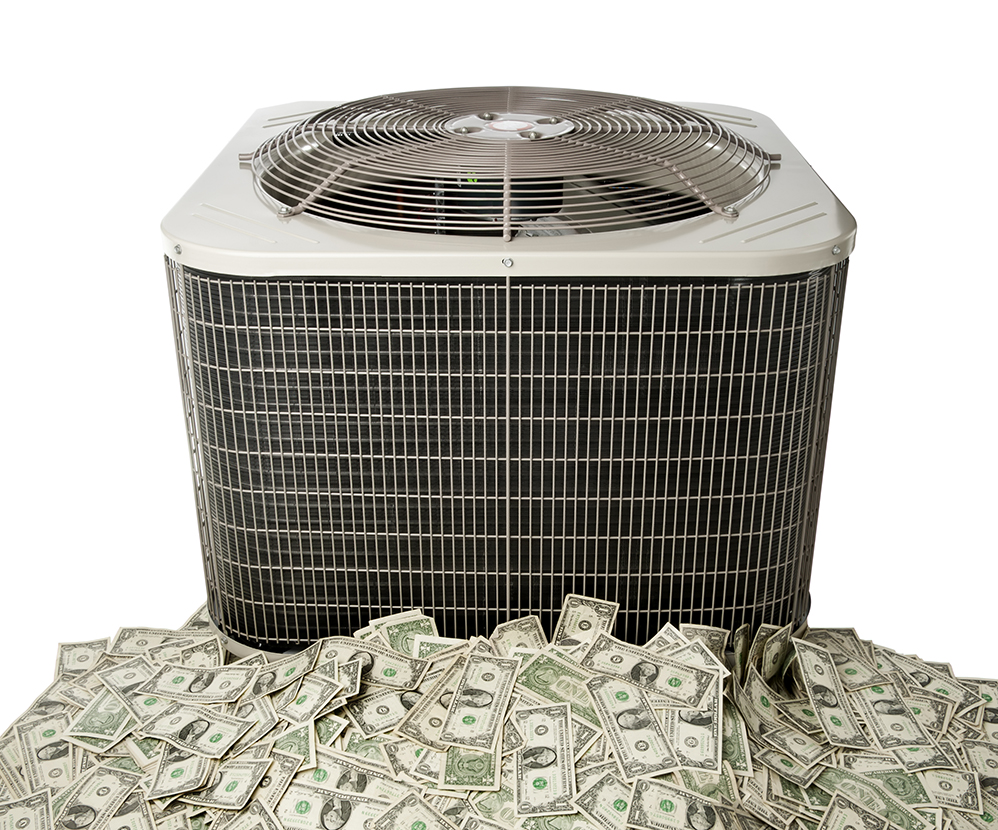Most of us live where some kind of home cooling is necessary, places where temperatures, air quality and humidity make central air conditioning a necessity for health and comfort. However, as with anything, there are costs and impacts to be considered. Energy is expensive, and prices continue to rise. Most of us are also concerned about the impact our energy choices have on the climate. How can we minimize the impact of this necessity on our wallets and our planet?

The average homeowner spends about $875 a year on heating and cooling energy costs. This can account for nearly half of all household energy expended throughout the year, and accounts for the majority of energy used during summer months. Naturally, this can be quite a financial burden for the average family. Replacing your present outdated air conditioning unit with a more efficient current model could cut your cooling costs by nearly 30%, making a big difference in the household budget.
Looking beyond the household expense alone, the impact on our environment may be even costlier. In just the United States alone, household cooling generates around 100 million tons of CO2. If every home with air conditioning chose to upgrade their current system to the most efficient air conditioning system available today, CO2 emissions would decrease by nearly 40 million tons. That’s a 40% reduction, which is huge. Reducing energy usage protects our planet by reducing harmful carbon emissions and lowering other greenhouse gases. There is clearly great potential for improving the planet’s health through energy efficient cooling units alone.
So how can you decide whether your current air conditioning unit needs replacing? If your system is more than ten years old, or it cycles on and off in rapid succession while in use, you should definitely look into upgrading your air conditioner to a newer, more energy-efficient model. Energy usage standards are constantly improving, meaning today’s units are far more efficient than those of even five years ago. This is good news for homeowners, since selecting a cost-effective air conditioner is now easier than ever. It would not be unreasonable to expect a 20% reduction in energy consumption from your cooling system when upgrading.
Central air conditioning requires a blower motor, which is usually a part of the home’s heating system, in order to move cooled air through the duct work. The best way to guarantee that your newly installed, energy-efficient air conditioner performs at peak efficiency is to install a new furnace at the same time. This is particularly important if your furnace is older than 15 years, as the blowers on older models do not operate as efficiently as current ones do.
Proper maintenance is essential if you hope to achieve the energy rating promised by your new system’s literature. To prevent potential problems with your air conditioner from arising, it’s a good idea to schedule regular maintenance of your unit with an HVAC technician. They will do a complete tune up of your system, including cleaning and inspection. An annual inspection and tune up before the cooling season begins is best. One tip for remembering to schedule this regular maintenance is to call for a check up when you change the clocks in the spring. One vital maintenance task you can perform yourself is to regularly clean the air conditioner’s filter. A dirty filter is a major cause of air conditioning breakdown, and will prevent your system from operating at peak efficiency.
Probably the biggest improvement you could make to your home’s overall energy efficiency would be to upgrade the residential air conditioning system to an improved, more energy efficient model. Energy prices continue to rise and show no signs of slowing down. The careful selection of an up to date, energy efficient residential air conditioning system will provide big savings in your home energy budget as well as making the planet a healthier and happier place.